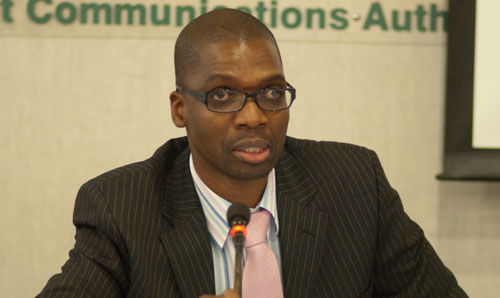
Despite coming into effect on 1 April, the Consumer Protection Act (CPA) continues to encounter opposition and challenges to its legitimacy.
Various parties have claimed that existing regulatory bodies provide consumers with the sort of protection the CPA is meant to provide, and that they should therefore be exempt from the legislation.
The Independent Communications Authority of South Africa (Icasa) on Thursday hosted a consultative workshop where interested parties were invited to present their case as to why they should be granted exemption from certain sections of the act.
Icasa chairman Stephen Mncube used Thursday’s proceedings to decry claims he says were made in some media reports that Icasa is opposed to the CPA. He says the CPA applies to all industries, without exception, but where other regulatory bodies already exist, neither Icasa nor the CPA wish to do conflict in the roles. Instead, Mncube wants Icasa and the National Consumer Commission, created in terms of the CPA, to work together.
Icasa councillor Fungai Sibanda says there are three main areas Icasa regards as potentially problematic for Icasa in the CPA.
The first pertains to contract terms and conditions. Sibanda argues Icasa’s code of conduct addresses the type of language permissible in contracts, the provision of information and the publication of tariffs, the confidentiality of consumer information, promotional marketing regulations and issues relating to defective products.
He says the Electronic Communications Act, which governs the telecommunications industry, does not give Icasa sufficient power to deal with each of these matters. Icasa wants to oversee billing matters but is willing to cede jurisdiction over some other issues to the CPA as it believes the act is better placed to deal with them.
Sibanda says Icasa’s intention is “not to neglect consumers, but rather to provide them with the best protection and, in these matters, the CPA is best placed to ensure that. Icasa is therefore proposing exemption from billing provisions [only]”.
Icasa also wants exemption from section 63 of the CPA. This section deals with prepaid vouchers. Sibanda says Icasa’s reading of this section suggests that as long as there is credit on a voucher the consumer is entitled to receive services, for a period of up to three years, which he believes may cause problems.
“We are mandated to ensure there is effective and efficient use of numbers as they are a finite resource. The practice in the industry is that if a particular Sim card is not active — that is, not generating revenue — for a given period, that number is suspended and recycled,” he says. “Operators may, therefore, be restricted in the recycling of numbers [under the act] and we, as a regulatory authority, might run out of numbers sooner than expected.”
The third area where Icasa is keen for exemption is section 54. This section deals with consumers’ rights to safe and good-quality products. Sibanda argues that Icasa’s existing end-user and subscriber service charter regulations are more detailed and more prescriptive in terms of the standards operators have to meet.
He says Icasa has attempted to come up with regulations pertaining to handset subsidies and the duration of contracts (section 14 of the CPA) but that the body’s attempt to engage with operators had resulted in Icasa being told to “back off” by operators because of the then pending CPA. He hints that Icasa will not oppose this area being regulated in terms of the new act. — Craig Wilson, TechCentral
- Subscribe to our free daily newsletter
- Follow us on Twitter or on Facebook




